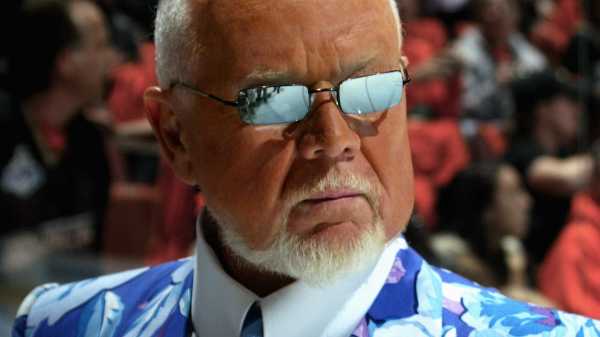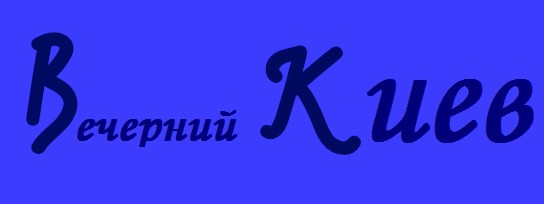
Ten years ago, while on a short winter vacation, I took my wife to see the International Hockey Hall of Fame, since rebranded as the Original Hockey Hall of Fame, in Kingston, Ontario. This was not the sport’s Cooperstown or Canton—that would be in Toronto. But the small building, which opened for a spare hour of business in direct response to my inquiring phone call, did house a fine collection of outlandish plaids and floral patterns worn by a Kingston native named Don Cherry, an ex-coach who was famous for valorizing bruised knuckles and dental dysfunction in weekly pronouncements on “Hockey Night in Canada” while dressing as if for a Mardi Gras parade. For my wife, who is not a sports fan and grew up in Indiana, the discordant ostentation offered a note of inclusiveness in an otherwise severe and insular sporting culture. This was Canadian camp; the essential element of theatre enriched her sense of hockey’s ritualized violence. Cherry even had a winking nickname, Grapes, and a cute bull-terrier sidekick. She bought a framed photo souvenir—not of Gretzky or Howe or Orr but of the amusing crank with a boutonnière.
The irony, of course, is that Cherry—who was fired on Monday by Sportsnet, the “Hockey Night in Canada” broadcaster, for accusing immigrants of being insufficiently patriotic—was also, for decades, the sport’s self-appointed gatekeeper. He had a long history of reproachfully making examples of on-ice behavior from people with backgrounds unlike his own. Not incidentally, either: to Cherry, the backgrounds often seemed to explain the ostensible problems. First it was Québécois, then Swedes, then Russians: all of them guilty, in their own way, of seeming to play hockey differently from English-speaking Canadians. (In a nutshell: they weren’t tough enough.) Cherry was a pioneer in the identity politics of sports. The game was the game, as defined by the people talking on television about it. He expected you to conform to it.
Five years ago, I wrote a story about P. K. Subban, whom Canada’s National Post had called the “most polarizing” player in the National Hockey League, and who, not incidentally, is black. His mother and father immigrated to Canada as children, from Montserrat and Jamaica, respectively. Subban was—is—a thrilling skater and also a lively personality. Cherry often called him out for being cocky—for celebrating goals with a flamboyance that seemed foreign to the stoic hockey code, for trash-talking (chirping, in puckspeak) above his station. Subban’s mother, Maria, told me, “See, the way hockey is, you’re supposed to carry yourself a certain way and behave a certain way. It’s kind of like the military and partly like being the Queen.” With those two institutions, she distilled the essence of Cherryism perfectly: a pageantry of regimentation. “P. K. is a fun person,” Maria went on. “And he smiles, and, all the guys, they hate it when he smiles on the ice, because hockey players are not supposed to smile on the ice.” But, she added, “This is a fun game.” Her son was, in a sense, blessed by an outsider’s perspective, and the sport was all the richer for it.
On that last score, Cherry didn’t exactly disagree. “Don’t get me wrong—he’s great for hockey, ” he said of Subban when I spoke to him on the phone years ago. “But he didn’t act like a rookie, you know what I mean? So I went on television and tried to tell him about it. ‘You shouldn’t do this,’ and ‘He’s got to stop that.’ Well, I was the bad guy, eh? . . . And the funny thing is, I was the guy that was trying to help him!” Even the gatekeeper, it seemed, could appreciate diversity once he’d had his say. Perhaps Subban would even take Cherry’s place some day, Cherry suggested. “You can’t get anybody with more of a personality,” he said. “That’s where he’s going to go when his career’s done: in twenty years, he’s going to go on television.”
Cherry, who was then eighty, acknowledged that he had a habit of getting in trouble for speaking his mind. He began our conversation with a warning that doubled as a plea for charity: “If the editor just takes out certain things, it won’t look very good.” He sought repeatedly to compare hockey (“an old-time thing”) to baseball, another sport with a tradition of celebrating its unwritten code at the risk of exclusion. He likened Subban to a bat flipper. “I’m not saying what is right and what’s wrong,” Cherry said. “I’m just telling you what it is.” Norms evolve, though, even if Cherry didn’t. “Hey, I’ve lasted this long,” he said. “I’m not going to change now.” In retrospect, it’s a shock that he hung on for another five years.
Although Cherry refused to change, Toronto, the capital of the hockey-playing world, already had. It is a majority-minority city, and it has an increasingly popular basketball team, the Raptors, to rival its beloved Maple Leafs. Cherry plainly didn’t like what he saw in the cosmopolitanism that threatened to efface the relative monoculture of his youth. The occasion of his terminal rant was Remembrance Day, when citizens of the British Commonwealth have traditionally worn poppies in honor of veterans of the First World War. Not enough people, he felt, seemed to be wearing poppies these days. He would still have his job if he’d left his lament at that: an appeal to respect veterans, a call to accessorize. (For Cherry, any opportunity to showcase flowers is a welcome one.) But he drew a cultural fault line, not unlike the one our own crank-in-chief sought to draw with Colin Kaepernick and the national anthem. The people in “small cities,” Cherry said, were doing O.K. It was “you people,” in downtown Toronto, who lacked sufficient respect. “You love our way of life,” he said. “You love our milk and honey.” “You people”: the gatekeeper’s fatal tell. Watching it, I found myself remembering his remark to me about the perils of being cherry-picked by an editor. He had it exactly wrong, I thought. An editor can save you from your worst instincts, at least some of the time. On live television, you’re just a crank.
For the network and its sponsors, it was no longer clear that the people Cherry was addressing would continue to love this specific aspect of Canadian life—watching hockey together on Saturday night—if the commentary didn’t change. On Monday, after Cherry had been fired, a self-described working mom in Ottawa named Noha Beshir, who is Muslim, and who, on Twitter, goes by the handle @hockeyhijabi, wrote a series of tweets about her education in the finer points of the game from watching Cherry as a girl. She had considered that store of knowledge her “Canadian badge.” (Her parents, she wrote, came to Canada in the seventies; her father had embraced the Montreal Canadiens dynasty of that era.) Eventually, she grew older and “realized Don was a xenophobe.” She “started to seek out other analysts, other commentators who represented a more open version of what hockey could be.” Her hockey fandom had at least survived the barrier that Cherry put up. If Cherry’s fault line were to harden and persist, it seemed possible to imagine that the next generation might not embrace the national game at all. That, to put it in Cherry’s terms, wouldn’t be great for hockey.
Sourse: newyorker.com
